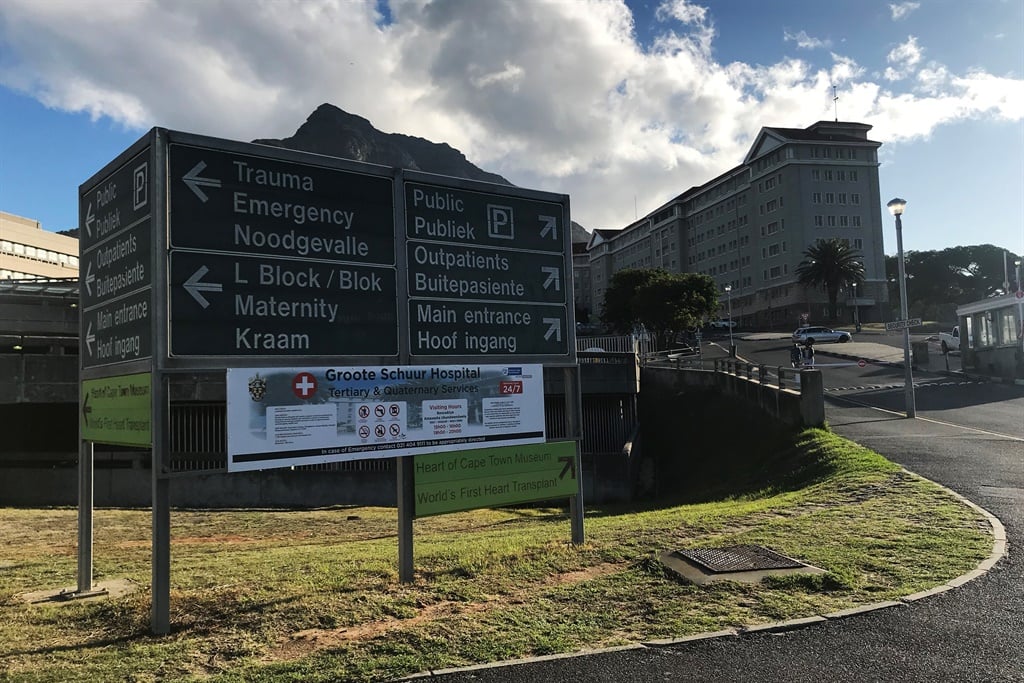
- Dr Marc Mendelson says that, in the last few weeks, he has not seen a vaccinated person develop Covid pneumonia, and needing intubation or ICU in his high care ward at Groote Schuur Hospital.
- According to the numbers released by the provincial health department, 38 984 people are currently infected, with 3 830 of those diagnosed within the last 24 hours.
- The current seven-day moving average is 108 deaths per day, while 1 219 744 people have been vaccinated.
As the number of people admitted to hospitals in the Western Cape increases amid the Covid-19 third wave, Dr Marc Mendelson has yet to see a vaccinated person develop Covid pneumonia, in need of intubation or ICU in his high care ward at Groote Schuur Hospital.
Currently, a total of 3 631 infected patients are battling the disease in hospitals across the province, of which 748 are in high care or ICU.
Premier Alan Winde said, while the Western Cape healthcare system remained under pressure as the province approached its peak, it was currently coping with the demands.
The province, according to the most recent statistics released by the National Institute for Communicable Diseases, continues to account for the majority of newly diagnosed cases at 27%.
According to the numbers released by the provincial health department on Wednesday, a total of 38 984 people are currently infected, with 3 830 of those diagnosed within the last 24 hours. Of the 414 830 people who have been infected with the coronavirus, 15 525 had died.
The current seven-day moving average is 108 deaths per day, while a total of 1 219 744 people have been vaccinated.
At Groote Schuur Hospital, Mendelson - the head of the Division of Infectious Diseases and HIV Medicine – has seen firsthand what the impact of the jab can be.
He stressed:
The Western Cape, in preparation for the third wave, increased the number of intermediate and acute care Covid-19 beds available in the public sector - from 1 681 in the first wave to 2 690 in the third, while three field hospitals have been activated with a ward on standby should they be required.
Ventilation and high flow nasal oxygen units available in the public sector increased from 266 in the first wave to 434 during the current one, while additional staff employed during the third wave had been upped to 1 921, compared to the 844 in the first wave.
This may be increased by another 700 should it be deemed necessary.
'It can literally save their lives'
Winde has repeatedly called for responsible behaviour and for those eligible to get vaccinated, as the province rolls out its weekend vaccination programme to reach those who aren’t able to get their jab during the working week.
Mendelson said the vaccination took, on average, 21 days to "induce the sort of level of immunity that we would be looking for".
"Johnson & Johnson is a single dose vaccine, whereas others like the Pfizer/BioNTech require two doses, and will only give maximal protection after the second dose. However, even after the first dose, we know there is significant protection against severe disease, hospitalisation and death with the Pfizer vaccine," he explained.
Mendelson believes the reason why he hasn’t yet seen a vaccinated person in need of drastic intervention is that it "protects excellently" against severe Covid-19, which results in hospitalisation and sometimes death.
He said:
"That is why people should get vaccinated. It can literally save their lives."
In his ward, most of the patients admitted in need of high care have comorbidities and require oxygen.
ALSO READ | Ramaphosa says vaccination a 'patriotic duty'
"Indeed, such is the pressure on ICU and hence high care beds where we offer high flow nasal oxygen. Sadly, only those patients who are most likely to benefit will get onto high flow," Mendelson said.
"As we did in the first and second wave, we use a prioritisation tool developed by the intensivists to prioritize patients. The same risk factors apply for severe disease – [such as] age over 60 [and] comorbidities - but we are seeing many patients under 60 and those without comorbidities. Tragically, we have seen patients in their 20s needing high and even intensive care."
'Trusted information providers'
Vaccination registration for people aged between 18 and 34 are scheduled to commence on 1 September.
Referring to a recent study by AfroBarometer, which suggested that 45% of South Africans believe that prayer is more protective than vaccinations and that distrust in government was a reason for not getting the jab, Mendelson pointed out that vaccines have gone through rigorous trials and are "generally extremely safe", adding that the risks had been "blown out of all proportion".
"The Covid-19 pandemic is happening in the here and now. Infection causes short- and long-term illness, severe disease and death. The only proven intervention to significantly reduce this is vaccination," he said.
He added:
He believes that health communicators, like him, need to amplify the use of "trusted information providers" and not just rely on government.
"South Africa has a rich tradition of trusted sources leading on community engagement and this needs to be maximised. It would also help to have role models play a greater role in advertising and endorsing. Write it into soap operas, music, dance - anything that will get the message across."
Did you know you can unlock this article for a friend who’s not yet a News24 subscriber? Click the gift icon at the top of the page.
